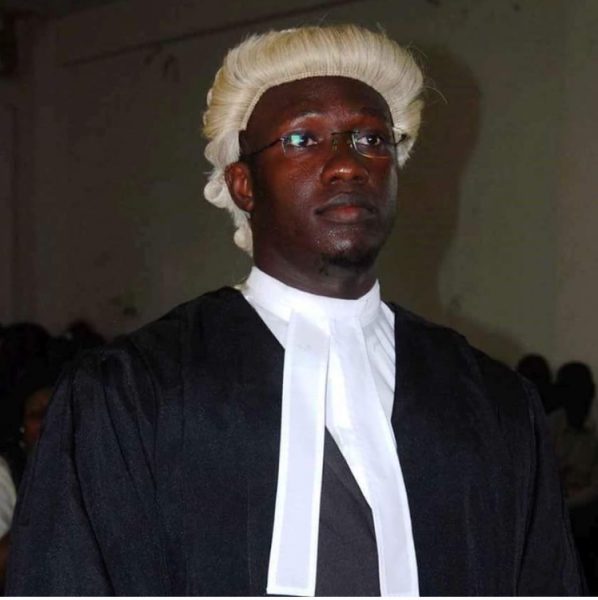
(JollofNews) – “We should not wash our dirty linens in public,” an agitated friend shouted.
“Why bring out the skeleton in your cupboard when we all have our skeleton,” another barged in.
“As civil servants we are under oath and therefore it is illegal to talk or pass information to the media without authorisation,” quipped another.
Apparently, all is not well in heaven. Secrecy is preferred to transparency. Laws there are which inhibit disclosure. Information is censored. The right to know is not a right or rather that you know what the “guardian” of information says you should know. Yet we know that “sunshine is the best disinfectant”.
Ok, let classified information remain classified until they are declassified. And deal with public opprobrium later when they come to know the real truth.
It beats my imagination how complaints of abuse of office, administrative malpractice, corruption or unfair treatment by an employee in the public service can be “state secret” and why one should suffer arrest and detention for bringing that to the attention of the President if he is the one we trust will listen and ensure fair play.
I don’t know the full details of the saga that is this Badjie case, but if the petition I have read online is his, then he is within his responsibility or duty as a staff of the NIA to speak up and out. I call this single act of courage as citizenship. Whether the allegations are true or false is a different kettle of fish and which proper investigation should prove. Allegation have to be investigated and proven otherwise before action is taken. Can’t be the other way around.
The Badjie case should teach us some lessons: that we still have neo-colonial Statutes, such as the Official Secrets Act, which protects government’s assault on our rights and liberties, creates an annoyingly intruding government, blocks transparency and accountability and effectively take away people’s right to know what chicanery and shenanigans their government do. We are faced with the perpetual conflict between the public right to know and official or state secret. “Classified information”, “public order”, “state secret” are some of the common phrases that have come to stifle free flow of information, transparency and dissent.
That an employee will face the full fury of the law if he or she speaks out against injustice, maladministration, abuse of office or other practices which go against ethics and good governance. That there is no protection, administrative or legal, for such a person who has the courage of conviction to report – you are left to your own mercies. That giving “false information” to a public officer is illegal, even when the whole world knows the information given is true.

The table can be deliberately turned against you by those who would wish that the information is not divulged. That reporting malfeasance is fraught with risks and dangerous mines- colleagues may be coerced or bribed into silence or become turn coats and you would be left holding the baby. That “silence is golden”. That if you see evil happening in your work place, don’t ever remove it with your hands or tongue but rather hate it in your heart and move on.
We must develop and strengthen internal accountability mechanisms, systems, processes and procedures in our institutions, in the public and private sectors.
Staff must have the assurance they would not face any reprisal or victimisation or witch hunt when they know about an administrative malfeasance, corruption, sexual harassment, nepotism, child sexual abuse and other “evils” and report them, anonymously or through the official channel. The procedures for reporting and investigation must be clear, accessible and fair. Abuse of office and corruption take please in secret and unless the internal accountability mechanisms are strengthened, discovering them or even fighting them will become very difficult. The rigidity of our current of our administrative procedures, the “reverence” we give our “bosses”, the “distance” between management and staff make reporting difficult.
One who decides to report abuse of office, at great personal and career risk, can find himself or herself isolated, can lose friends, can be hounded by the friends of those he or she dares to expose, can have trumped up charges manufactured against him or her, can be faced with a hostile work environment, can ganged up against by work colleagues who are equally guilty of the abuse of office exposed or have been manipulated by the bosses. Absence of protection would inhibit against reporting. Corruption and abuse of office will grow unabated, development will be retarded, morale will be low, productivity will decline and inefficiency, born out of nepotism and favouritism, will characterise the system.
Citizens cannot contribute effectively to national development unless all avenues for making their opinions, dissatisfaction and appreciation, known are wide open, with no penalty attached for making known such an open. Citizens though must know that they do not have the right to insinuate or fabricate to get at another person or to settle personal score and the person maligned can as well take legal recourse.
The law, as it is, requires that civil servants discuss, through official correspondence or in person, any grievance or complaint they may have with their supervisors or heads of departments and through to the last on whose desk the buck stops. Any deviance from such procedure is seen as insubordination. And we know the administrative rigmarole involved, the “kinship” often between heads and the labels one incur in the attempts to air out one’s grievances or complaints. From the word go, there are bottlenecks.
If we are to strengthen our accountability mechanisms, we must start at the local or organisational level away from the centre, where decisions are implemented or enforced. If we get them right in these places, we may get it right at the centre.
Above all, we should continue to question some of the laws or provisions we have on our Statutes. What purpose do they serve? Whose purpose are they serving? Whose reason do they embody? Do they real serve the public interest and welfare or some class or some person only? It is a fact that “the ideal purpose of law is not necessarily identical with the actual purpose of law as these are experienced by those who receive the law” Harold Laski
Beware the coercive power of the State, extended and legitimised through the law.




